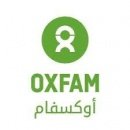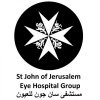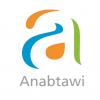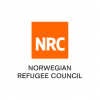Resilience Analysis – West Bank
Background
This Terms of Reference (ToR) is developed to support the implementation of the BMZ-funded Transitional Development Assistance (TDA) programme titled "Building Resilience in the Communities of the West Bank to Transform the Current Shock into a Sustainable Future" (2025–2029). The resilience analysis is a core activity within this programme and is designed to directly inform project design, intervention strategies, and the Theory of Change.
The West Bank faces multiple and overlapping crises that undermine the resilience of communities and systems. These include Israeli occupation policies, land fragmentation, water scarcity, economic dependency, and governance fragmentation. In recent years, the Gaza war’s spillover and political polarization have intensified pressures on already fragile communities, particularly in East Jerusalem, Ramallah and Al-Bireh, Jericho, and the Jordan Valley. These areas are further impacted by climate-induced vulnerabilities and limited access to basic services, land, and market opportunities.
The BMZ-funded TDA 2025–2029 programme aims to support crisis-affected populations to stabilize their livelihoods, adapt to structural risks, and transform community systems in a way that fosters long-term resilience. This resilience analysis will serve as a key input into the program’s strategic design, providing a detailed assessment of contextual risks, existing capacities, institutional gaps, and community priorities.
Objectives
The objective of this consultancy is to conduct a portfolio-informing and project-designing resilience analysis that provides a comprehensive understanding of the following:
-
Contextual Risk and Vulnerability Analysis: Identify and analyse the main risks, crises, and vulnerabilities affecting the target locations, with particular attention to gender dynamics, exposure to shocks, and underlying structural inequalities.
-
Stakeholder and Actor Mapping: Map affected and responsible actors and structures, including their strengths, capacities, and potential for coping with and responding to risks and crises.
-
Institutional and Community Capacity Assessment: Assess institutional and community-level capacities and gaps in preparedness and response to shocks.
-
Cross-Sectoral Crisis Management Needs: Identify needs and opportunities to strengthen cross-sectoral crisis management and resilience capacities.
-
Resilience Analysis Across SAT Dimensions: Analyse key resilience capacities across the three dimensions: stabilization, adaptation, and transformation (SAT).
-
Gendered Resilience Assessment: Examine gender-specific risks, gaps, and capacities across the SAT dimensions to inform inclusive resilience programming.
-
Peacebuilding and Governance Opportunities: Identify peacebuilding and governance opportunities that contribute to strengthening local systems and social cohesion.
-
Strategic Gender-Responsive Recommendations: Provide strategic, gender-responsive recommendations to inform the programme’s Theory of Change (ToC) and implementation roadmap.
-
Resilience Capacity Matrix Development: Develop a structured matrix mapping resilience capacities at the individual, community, and institutional levels across SAT dimensions, highlighting strengths and gaps.
-
Indicator and Proposal Design Inputs: Provide concrete inputs to support the formulation of SMART, gender-responsive indicators and guide the design of the TDA project proposal in alignment with the ToC.
-
Participatory and Adaptive Analysis: Ensure the analysis is participatory, contextually grounded, and aligned with national strategies and BMZ priorities, while identifying mechanisms for adaptive learning within the TDA programme
For the full TOR and how to apply please see the TOR attached





















